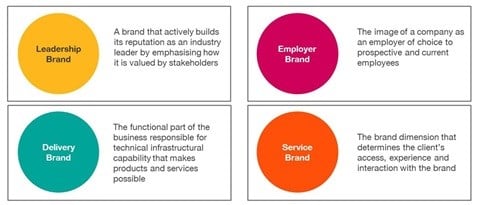
Top stories






More news


Marketing & Media
Ads are coming to AI. Does that really have to be such a bad thing?













We've all read how the Millennial Generation is more fickle, unpredictable and demanding than the majority of companies know how to handle. But most importantly, today's new entrants to the workforce are motivated not only by compensation, benefits and skills development but by the desire to belong to a company that has a purpose that resonates with their own values, aspirations and desire to contribute to society. Balancing all these aspects is turning out to be a real challenge for brands.
How to attract, engage and retain top talent is a topic that deserves serious attention from business, as a long term strategy not a recruitment task for the HR department.
Traditionally, employer branding was about 'selling' good employee value propositions (compensation, benefits, training, development, etc.) to the most talented people. Today, employer brands are understood to be much more holistic. They reflect the business' personality, characteristics, beliefs and differentiating principles. They are driven by how happy and motivated your employees are, how strong, healthy and engaging the culture is. It is also about your company's ability to lead, innovate and inspire (Apple), environments that stimulate creativity and collaboration (Google), showing that you truly care about your employees' well-being and work/life balance (Unilever) and authentically demonstrating your company's purpose (Coca-Cola).
As with all brand messaging in this age of social media, it is difficult to control. Employee experiences are shared in public and in real time. So the only sure way to get the right messaging out there is to ensure those experiences are consistently positive.
Sceptics argue that it is not the employer brand that attracts people, but rather ''it is because we lead the industry"; or "we make the best products". They aren't wrong. A leadership position is an important driver of brand choice, both for consumers and employees. But leadership is just one of four brand dimensions which contribute to business success - each in their own, significant way:

In our experience, most companies are either unaware of these dimensions or they manage them in isolation. A better approach is to investigate how they drive, support and reinforce one another to create a virtuous cycle of business performance and brand relevance.
"You won't get your customers to love your brand unless your employees love it first"
Being seen as a great employer correlates strongly with business performance. It drives higher engagement and retention, higher revenue growth and greater shareholder value over the long term. In 2011 LinkedIn reported that a strong employer brand reduces the cost per hire by up to 50%. The impact on the bottom line is immense, yet most companies fail to prioritise it.

Here are a few of our tips to help build a great employer brand
Sources: